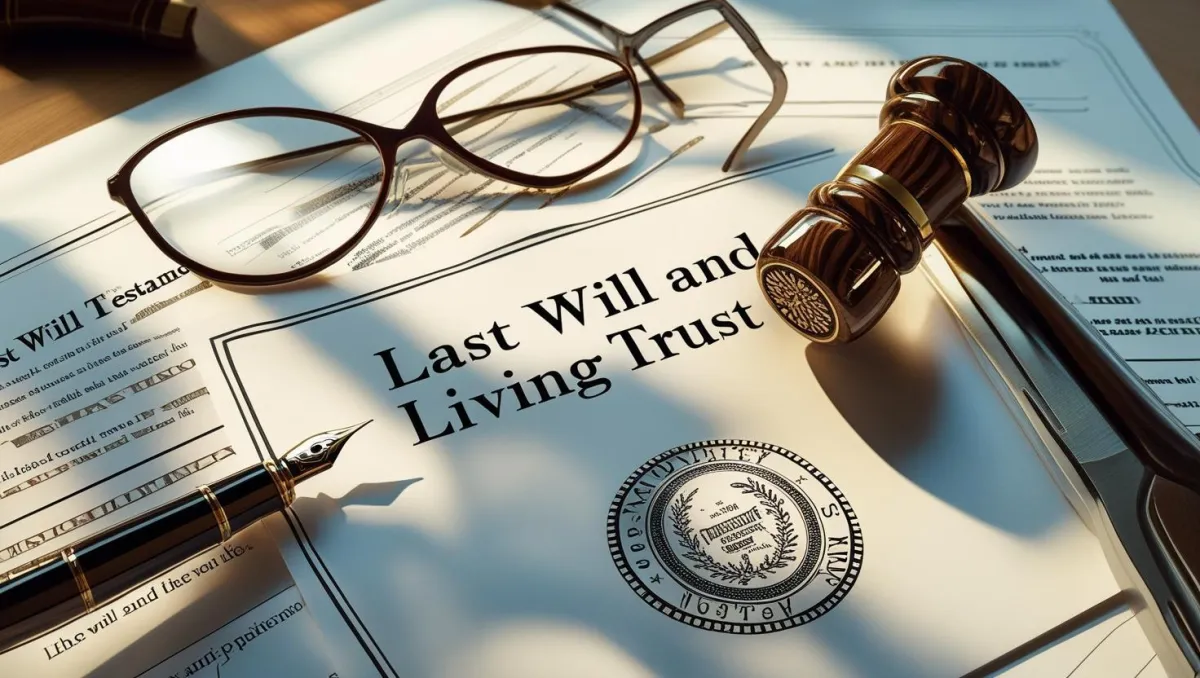
Estate Plans, Wills, and Trusts: What Can Be Notarized in Texas?
Estate Plans, Wills, and Trusts: What Can Be Notarized in Texas?
When it comes to estate planning, there are a lot of moving pieces. Wills, trusts, powers of attorney, and other important documents are meant to protect your wishes and make life easier for your loved ones down the road. But do they need to be notarized? And if so, who can help?
If you're in Texas and trying to make sense of what needs a notary and what doesn't, you’re in the right place. I'm a mobile notary serving San Antonio and the surrounding areas, and I specialize in real estate closings and trust delivery. I work with estate planners, families, title companies, and realtors every week to make sure everything gets signed and notarized correctly the first time.
Let’s walk through what can (and sometimes should) be notarized when it comes to wills, trusts, and other estate planning documents in Texas.
Do Wills Need to Be Notarized in Texas?
This is one of the most common questions I hear, and the answer is a little tricky.
A basic will doesn’t have to be notarized in Texas to be valid, but without a notary, it may have to go through extra steps in probate court. Most attorneys recommend including a “self-proving affidavit,” which does need to be notarized. This affidavit allows the will to be accepted by the court without your witnesses having to testify later. It’s basically a shortcut that saves time, money, and hassle for your family.
So while the will itself doesn’t need a notary, having one notarize the self-proving affidavit is a smart move.
What About Trust Documents?
If you’ve created a living trust or any other kind of trust, the documents usually do require notarization.
Why? Because trusts often involve transferring property and naming someone else to manage it. When you’re giving someone legal authority like that, a notarized signature helps confirm that you understood what you were signing and did it willingly.
If you’re working with an estate planning attorney, they’ll let you know what needs to be notarized. But if you’re delivering trust documents to a client or you’re the one signing, a mobile notary can come to you and take care of it on the spot.
What Else in an Estate Plan Might Need a Notary?
Quite a few things, actually. Some of the most common ones I see include:
Durable Power of Attorney – Almost always needs to be notarized in Texas.
Medical Power of Attorney – Same here. This one gives someone the right to make health decisions for you if you can’t.
Directive to Physicians (Living Will) – May not be legally required to be notarized, but many attorneys strongly recommend it to avoid future challenges.
HIPAA Authorizations – Sometimes notarized for added assurance, especially when part of a larger estate plan.
Even if notarization isn’t legally required, it can add a layer of protection and peace of mind. It proves that you signed the document willingly and were of sound mind when you did it.
Can I Notarize My Own Estate Documents?
Nope. Even as a notary, I can't notarize anything I'm personally involved in. Texas law requires notaries to remain impartial. That means you’ll need a neutral third party.
If you’re a family member helping someone put their estate plan together, you can absolutely schedule a mobile notary to meet them at home, in the hospital, at an attorney’s office, or anywhere else that’s comfortable for them.
When Should You Call a Mobile Notary?
Here’s the simple rule: If you're not sure whether a document needs notarizing, ask your attorney. If it does - or you want it to - call a mobile notary.
I can meet you wherever you need to sign, whether that’s at home, in the office, or even at a care facility. I’ve helped families finalize documents when time was tight or emotions were running high, and I always aim to keep things smooth and stress-free.
Final Thoughts
Estate planning can feel overwhelming, but notarizing your documents doesn't have to be. If you're working with a legal professional, they’ll guide you on what needs notarization. If you're in San Antonio or nearby and need a reliable notary to help with trusts, powers of attorney, or other estate documents, I’d be honored to assist.
Need a mobile notary to handle your estate documents in San Antonio or Comal County? Reach out today and let’s get it scheduled.
